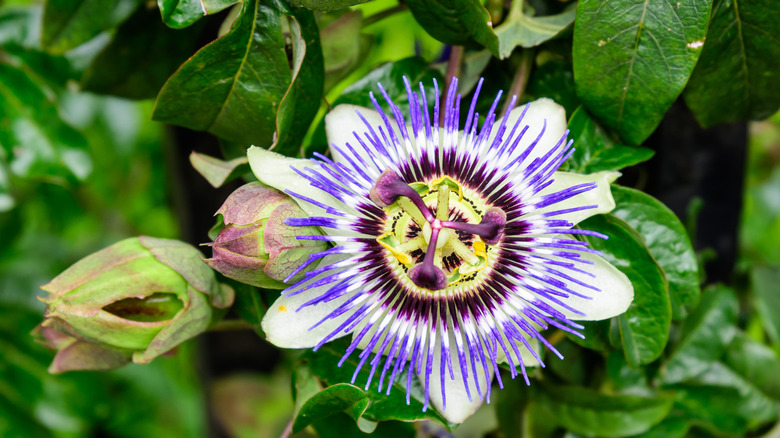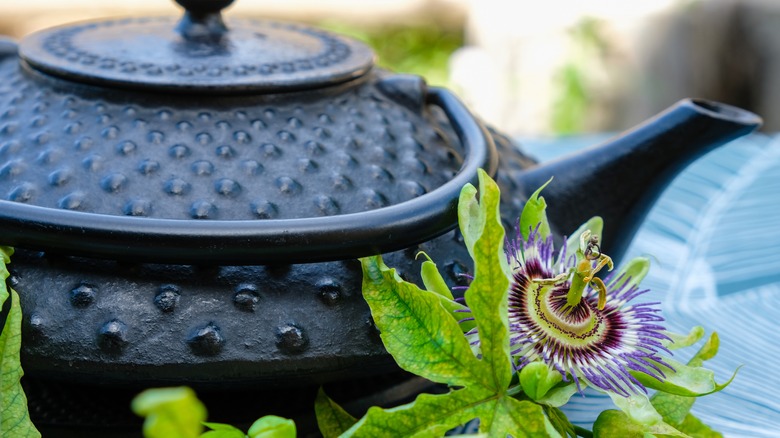What Are The Health Benefits Of Passionflower?
The passionflower is an exotic white flower with an inner flower consisting of purple tentacles. It's a climbing vine found in southeastern parts of the U.S. and South America (via Medical News Today). Part of the Passiflora plant family, there are over 500 identified species of passionflowers, with some varieties offering medicinal benefits according to Healthline. While each variation offers different benefits, the most commonly researched passionflower is Passiflora incarnata (P. incarnata). Research has found P. incarnata may be helpful in treating insomnia, pain, and anxiety, according to Medical News Today.
In 2017 study published in the International Journal of Biomedical Science, researchers tested the effects of P. incarnata on mice. Results suggested a strong link between passionflower and its ability to improve sleep. Another 2011 clinical trial published in Phytotherapy Research tested the correlation between humans drinking herbal passionflower tea and sleep performance and found similar results to the prior study.
In regard to the passionflower's calming ability in reducing anxiety, the research is also very promising. Its anxiety-reducing powers may be due to the flower's ability to increase the production of gamma-aminobutyric acid (GABA), which reduces brain activity and promotes calming sensations (via Healthline). Despite research, more extensive evidence is needed to confirm the medicinal benefits of P. incarnata (via Medical News Today).
Is passionflower safe to consume?
Historically the passionflower has been used by various groups of people to treat different health conditions. This plant was a popular medicinal flower for Native Americans treating anything from wounds to liver problems and was also commonly used by native Peruvians and Spanish explorers (via Healthline). However, with vanishing nutrients possible due to climate change, per Scientific American, and not enough research proving the benefits, is the passionflower safe to consume?
The National Center for Complementary and Integrative Health suggests that while the benefits haven't been studied extensively, you can safely ingest up to 800 mg of passionflower extract daily for up to 8 weeks based on prior studies. In some cases, side effects include dizziness, confusion, and drowsiness according to Healthline. Just be mindful when using the flower, as excessive amounts are unsafe and any amount may be unsafe for pregnant mothers. It's advised to always consult with your physician when trying a new alternative medicine or supplement.
There are several ways to take passionflower, according to Healthline. Make a homemade herbal tea by boiling water and adding dried passionflower to the tea. Or, for a quicker option, stop by a local health food store to buy passionflower capsules, dried alcoholic extracts, and prepackaged tea.


